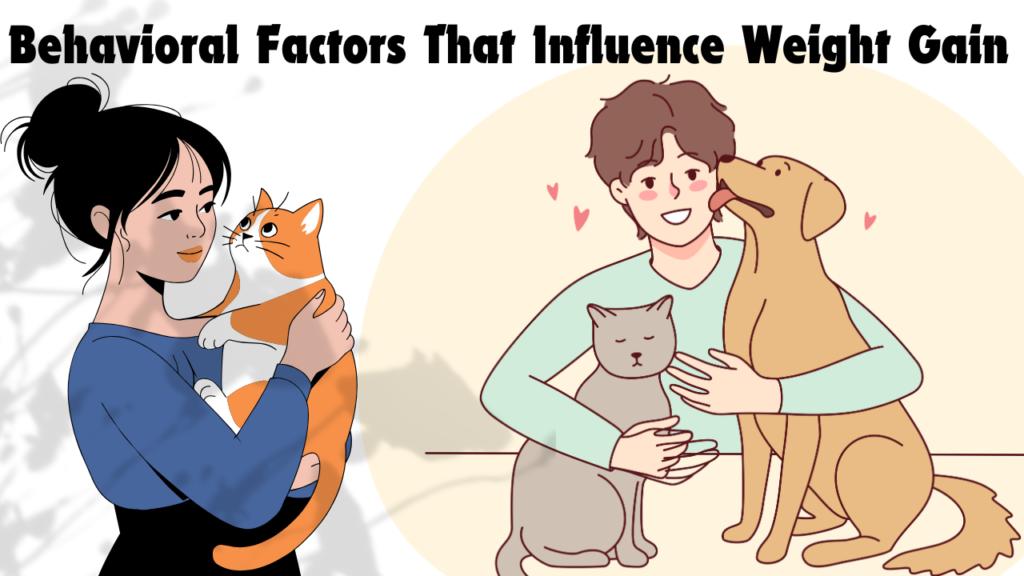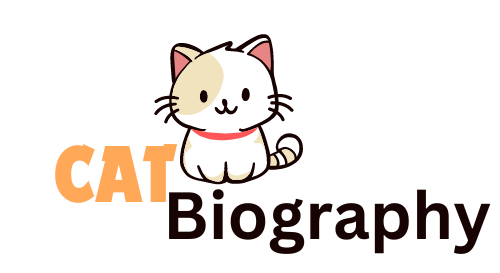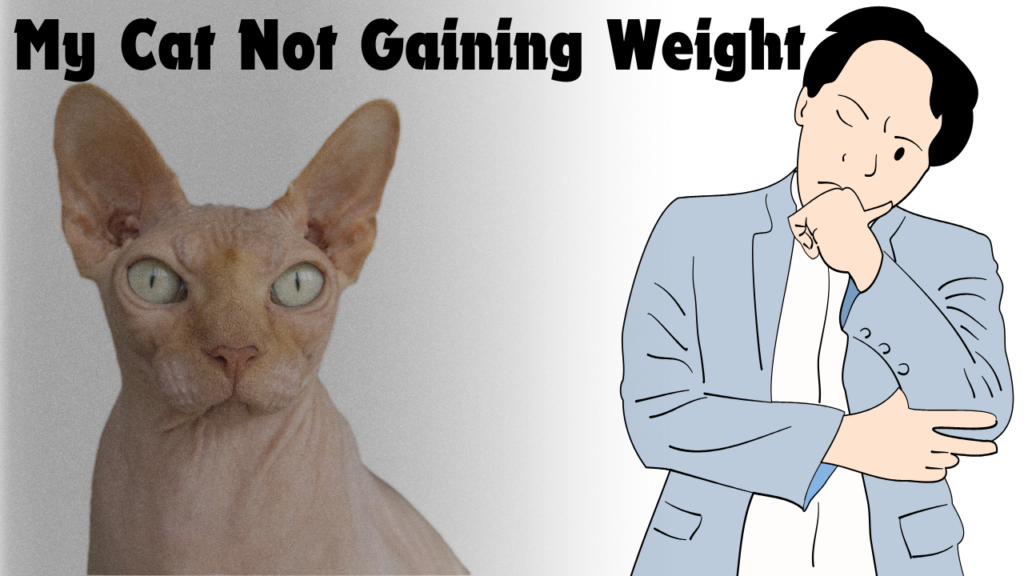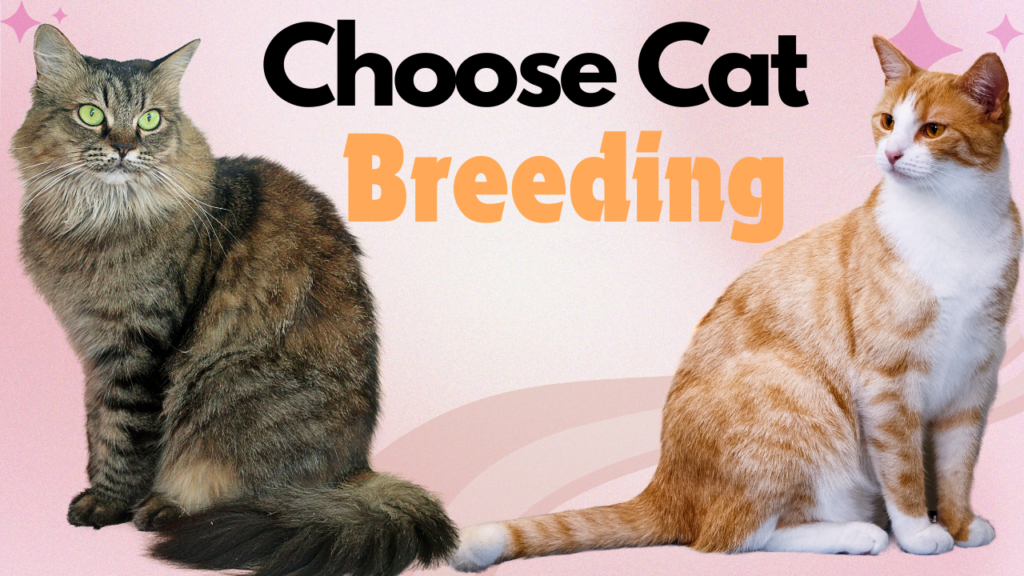As caring cat owners, we often worry when our feline friends aren’t gaining weight as expected. While some cats are naturally lean, consistent failure to gain weight may signal underlying health concerns or lifestyle issues. This guide provides comprehensive insights into why some cats struggle to maintain a healthy weight, symptoms to watch for, and actionable solutions to ensure your cat stays fit and well-nourished.
Ideal Cat Weight: What Should Your Cat Weigh?
A healthy adult cat typically weighs between 4 and 4.5 kilograms, but breed, age, and activity level play a significant role. Larger breeds, such as Maine Coons, can weigh up to 11 kilograms. Regularly monitoring your cat’s weight and understanding their body condition helps detect problems early.
Body Condition Scoring (BCS)
Body Condition Scoring is a method used to evaluate your cat’s physique on a scale from 1 to 9, where:
- 1-3 indicates underweight,
- 4-6 is ideal, and
- 7-9 indicates obesity.
For a quick test, use the “hand test”: Gently feel your cat’s ribs. A healthy weight feels like the back of your hand, while prominent ribs suggest underweight, and hard-to-feel ribs can indicate overweight.
Common Reasons Why Cats Fail to Gain Weight
1. Nutritional Deficiency
Cats require a specific blend of nutrients, including proteins, fats, and essential vitamins. Cats fed low-quality or improperly balanced diets may not receive adequate nutrients, hindering weight gain.
- Solution: Opt for high-protein, calorie-dense foods designed specifically for cats. Consult your veterinarian for balanced meal plans tailored to your cat’s needs, especially if your cat has special dietary requirements.
2. Intestinal Parasites
Intestinal parasites like roundworms, hookworms, and tapeworms can cause weight loss or prevent weight gain. These parasites deplete your cat’s nutrient supply, leading to malnourishment despite a healthy appetite.
- Symptoms: Bloating, diarrhea, vomiting, lethargy.
- Solution: Regular deworming and veterinary checks are essential. Deworming every three months can prevent recurring infestations.
3. Chronic Kidney Disease (CKD)
CKD commonly affects older cats, disrupting essential bodily functions, which leads to weight loss and difficulty in gaining weight.
- Symptoms: Frequent urination, increased thirst, lethargy, poor appetite.
- Solution: Cats with CKD often require a low-protein, high-moisture diet to reduce kidney strain. Follow up with regular blood tests and hydration therapy as prescribed by your veterinarian.
4. Hyperthyroidism
Hyperthyroidism is a common hormonal disorder in older cats, causing the thyroid gland to overproduce thyroid hormone. This condition speeds up metabolism, leading to weight loss despite increased appetite.
- Symptoms: Increased hunger, hyperactivity, frequent vomiting, diarrhea.
- Solution: Vets typically prescribe medications like methimazole, or recommend surgical or radioactive iodine therapy to manage hyperthyroidism.
5. Diabetes Mellitus
Diabetes in cats impairs their ability to regulate blood sugar, causing the body to break down fat and muscle for energy. This can lead to weight loss even with normal food intake.
- Symptoms: Excessive thirst, frequent urination, appetite changes, lethargy.
- Solution: A carefully managed diet, insulin therapy, and regular blood sugar monitoring are essential to control feline diabetes.
6. Gastrointestinal (GI) Disorders
Cats with GI disorders, such as inflammatory bowel disease (IBD), food allergies, or infections, may struggle to digest and absorb nutrients properly, leading to weight loss or poor weight gain.
- Symptoms: Vomiting, diarrhea, decreased appetite, fatigue.
- Solution: A hypoallergenic or specialized diet, along with medications, can help alleviate symptoms and improve nutrient absorption.
Behavioral Factors That Influence Weight Gain

1. Stress and Anxiety
Environmental stress or sudden lifestyle changes can reduce a cat’s appetite, leading to weight loss. Cats are creatures of habit, and even minor adjustments can affect their mood and eating behavior.
- Solution: Maintain a calm, stable environment for your cat. Using pheromone diffusers or establishing a predictable daily routine can reduce stress.
2. Dental Issues
Painful dental conditions like gingivitis, tooth decay, or oral infections can make eating uncomfortable, leading to reduced food intake.
- Solution: Regular dental checkups and cleanings are crucial. Soft, wet food can be a gentler option for cats with dental issues.
How to Help Your Cat Gain Weight: Effective Strategies
Increase Caloric Intake Gradually
Increasing your cat’s meal frequency or portion sizes is an effective way to boost calorie intake. Offer multiple small meals throughout the day instead of one or two larger meals.
Choose High-Calorie, Nutrient-Dense Foods
Opt for high-calorie cat foods that are specifically formulated to aid weight gain. Mixing wet and dry food or adding kitten food (which is calorie-dense) can also encourage eating and provide extra nutrients.
Supplement with Weight-Gain Products
Weight-gain supplements or calorie gels are available, but always consult your veterinarian before introducing them. These products provide concentrated calories but should be used in moderation.
Create a Cat-Friendly Eating Space
Cats prefer quiet, clean spaces for eating. Ensure the feeding area is away from litter boxes or high-traffic zones to encourage relaxed eating.
Hand-Feed or Warm Up Food
Some cats respond well to hand-feeding, especially if they’re dealing with stress or recovering from illness. Warming wet food slightly enhances its smell, often making it more appealing.
Monitor and Adjust Diet According to Progress
Use a weekly weight check to monitor your cat’s progress. If your cat is not gaining weight as expected, consult your veterinarian to review diet, health, and lifestyle factors.
When to See a Vet: Signs of Concern
Immediate veterinary attention is required if your cat shows any of the following symptoms, as they may indicate serious health conditions:
- Persistent weight loss
- Decreased appetite or refusal to eat
- Lethargy or weakness
- Vomiting, diarrhea, or other signs of GI distress
- Excessive thirst or urination
Suggested Diagram: Causes of Weight Loss in Cats
mermaidCopy codegraph TD;
A[Reasons for Weight Loss] --> B[Nutritional Deficiency]
A --> C[Intestinal Parasites]
A --> D[Chronic Kidney Disease]
A --> E[Hyperthyroidism]
A --> F[Diabetes Mellitus]
A --> G[Gastrointestinal Disorders]
A --> H[Stress and Anxiety]
A --> I[Dental Issues]
Conclusion
Understanding the reasons behind your cat’s difficulty in gaining weight is essential for their well-being. From ensuring a nutrient-rich diet to addressing underlying health issues, there are many steps you can take to help your cat maintain a healthy weight. Always prioritize regular veterinary checkups, as many causes of weight loss in cats require professional treatment. With careful monitoring and the right support, you can help your cat stay at an ideal weight, ensuring they live a long and happy life.
#: READ ANOTHER POSTS
2 : Can Cats Eat Seaweed? The Nutritional Benefits and Potential Risks Explained


